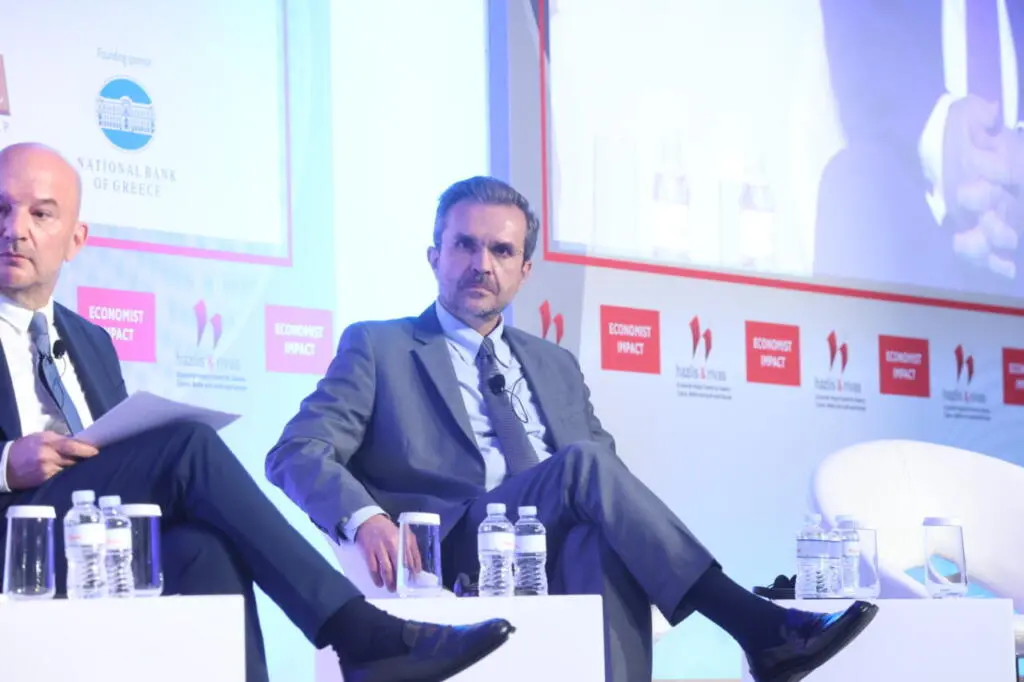The ways in which Greece can adopt a new development model were mentioned by the rector of Alba Graduate Business School, The American College of Greece and Professor of International Business Relations, Kostas Axarloglou, during his participation in the 26th Round Table Meeting with the Greek Government of the Economist, entitled “Contradictions, transformations, achievements in a changing world.”
Axarloglou participated in the discussion on “Achievements and transformations in the business sector of Greece.”
The discussion took place on the second day of the conference and was also attended by Adonis Georgiadis, Minister of Development and Investments, Panagiotis Mourgos, CEO of TEHAN SA, Stavros Konstantas, CEO of Ethniki Insurance Group, Greg O’Hara, founder and CEO of the investment company Certares, and Stefan Kraus, Chief Manager of the consulting company Henley & Partners.

During the event, which was organized in Lagonissi and in which Alba participated as an Academic Partner, Costas Axarloglou referred to the new development model of the Greek economy, as it is shaped in our time, with the main characteristics of extroversion and emphasis on focused innovation – things that will make the country an important “player” in value chains internationally.
More specifically, the Rector of Alba Graduate Business School referred to the three main axes that characterize the country’s transition to the new development model.
Initially, it underlined the importance of the relevant legal, political and social framework that facilitates this transition.In particular, Axarloglou referred to the government’s entrepreneurship-friendly attitude, stressing, however, that even more important is the widespread assumption within society itself, that businesses are the ones that produce wealth and the government operates regulatorily or even giving direction to economic development.

He then referred to the second axis – that of the relevant resources that the country has to move to the new development model – emphasizing the importance of brain gain and the attraction and promotion of top talent that the country has.
At the same time, he noted that the wave of the “Great Resignation” revealed that location is, after the pandemic, a priority of human capital for remote work.
According to him, Greece is an important destination for the digital nomads of the new era – who can expand the country’s talent pool.In addition to human resources, Axarloglou referred to the increase in foreign direct investment, which reveals the commitment of international capital to permanent investments, while he also stressed the significant opportunities that arise for the implementation of new initiatives by the Recovery and Resilience Fund (RRF).
Finally, the third decisive axis is related, according to the Rector, to the strategic vision for the new development model.
The country, as he said, is moving towards a development model that has its eyes on the international business community, focuses on innovation and high specialization and recognizes that a small country like Greece cannot do everything, but can do some things in an excellent way: In this finding lies the recognition of Excellence as a lever for development.
“All of us,” Axarloglou said in the end, “We are part of this new development model. In this course there may be uncertainty, pressure, and even failures. But there are also many successes and an important purpose: To create the economy we want for the good of society, our people, our children.”

